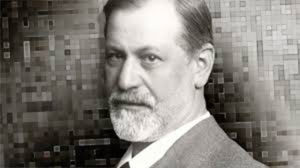« De la loi symbolique à la capacité narrative – Changement de paradigme en psychanalyse ? »
Résumé
Dans l’optique freudienne, les fantasmes originaires, reflet de la préhistoire, nous contraignent à travers l’héritage phylogénétique et sa répétition raccourcie dans l’ontogenèse, à reconnaître les limites entre générations et sexes, à nous soumettre à la loi symbolique représentée par le père de la horde primitive, et – comme le recherche le but de la cure – trouver une « juste » place dans la scène originaire (complexe d’Œdipe). L’expérience clinique avec des patients souffrant de troubles précoces a très tôt amené certains analystes à proposer un changement de ce paradigme provoquant ainsi des modifications importantes au niveau de la technique, mais plus récemment aussi au niveau métapsychologique. Certains analystes contemporains conçoivent le sujet en portant toute leur attention aux processus d’interaction et de communication entre des « appareils à penser » dans le hic et nunc. L’auteur démontre que ce courant se fait en parallèle avec les tendances majeures de notre époque « post-moderne » où la communication et la négociation remplacent les préconceptions religieuses, mythiques, philosophiques, morales ou politiques antérieures.
Samenvatting
Trouw aan de freudiaanse gedachte, kan men de oerfantasmen, weerspiegeling van een voorgeschiedenis, beschouwen als een verplichting om via de fylogenetische ( en vervolgens herhaald in de ontogenetische) erfenis de verschillen tussen generaties en geslachten te erkennen. We onderwerpen ons aldus aan de wetten van de symbolische orde, zoals voorgesteld door de vader van de primitieve horde, en stellen als doelstelling van een analytische kuur het vinden van een ‘juiste’ plaats in de oerscène (oedipus-complex). De klinische ervaring met patiënten die vroegtijdig gekwetst werden bracht sommige analysten ertoe dit paradigma aan te passen met belangrijke gevolgen op technisch vlak, en recentelijk ook op metapsychologisch vlak. Sommige hedendaagse analysten beschouwen dit onderwerp volledig in functie van de interactie en communicatie tussen “denkapparaten” in het hic et nunc. De auteur van dit artikel wil aantonen hoe deze tendens parallel loopt met de belangrijkste stromingen van onze “post-modernistische” tijd waar communicatie en onderhandeling de vroegere religieuze, mythische, filosofische, morele of politieke preconcepten vervangen.
Summary
In the Freudian view, the primal fantasies which reflect prehistory, oblige us through our phylogenetic heritage and its repetition in the ontogenetic to recognize the limits between generations and genders, to submit to the symbolic law represented by the father of the primal horde and so to find – this is also the aim of the cure – a “just” place in the primal scene (oedipal ¬complex). Clinical experience with patients suffering from narcissistic disorders early led analysts to claim a change of this paradigm, especially with regard to analytic technique, but lately also with regard to metapsychology. Several contemporary analysts have described the subject by focussing attention exclusively on the processes of interaction and communication between two “apparatus for thinking thoughts” in the hic et nunc. The author shows the parallel with major tendencies of our “postmodern” epoch where communication and negotiation have taken the place of earlier religious, mythical, philosophical, moral or political preconceptions.





